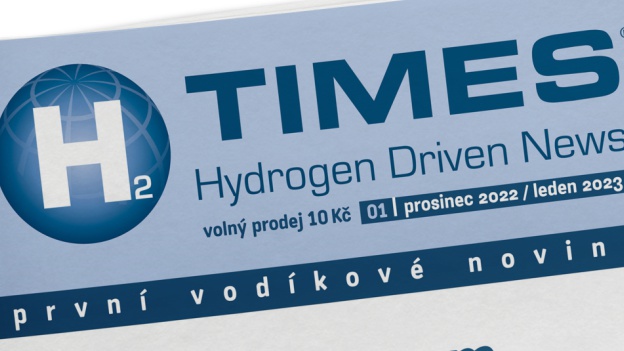The Czech Republic needs to make better use of hydrogen in industry and transport to avoid high fines after 2030 for non-compliance with European directives and more expensive emission allowances. Underestimating the hydrogen economy could negatively affect GDP growth, employment and investment inflows. This is confirmed by the conclusions of a study by the Confederation of Industry of the Czech Republic with the support of ORLEN Unipetrol.
The Czech Republic is slowly missing the hydrogen train. Although the Czech Republic has had a hydrogen strategy since 2021, it has not been implemented in practice and is currently undergoing an update. Not only does the European Union envisage hydrogen as an important alternative fuel for transport in its plans for the coming years, but hydrogen can also play a key role in decarbonising the entire industry.
However, the current situation in the Czech Republic does not correspond to this. At present, hydrogen is used de facto only in the chemical industry, as a raw material and intermediate for the production of ammonia, aniline or in refineries. In transport, it is still minimally used - in 2023, 24 passenger hydrogen vehicles were registered in the Czech Republic. It is not used at all in the energy and heating sectors.
"Hydrogen represents an opportunity for our economy. Initially, it will be used primarily to meet binding European targets, but as the hydrogen economy develops and prices fall, its use will be much wider. Like the rest of the European Union, we have committed ourselves to gradually reducing our carbon footprint in transport and industry, and hydrogen can play a big role in this. As a country, however, we must not fall asleep and we must not underestimate the preparation for the mass use of hydrogen. At the same time, we should communicate much more about hydrogen and its advantages and possible negative impacts," explains Jan Rafaj, President of the Confederation of Industry of the Czech Republic.


HIGH COST AND LACK OF INFRASTRUCTURE HINDER THE USE OF HYDROGEN
The main reasons why hydrogen has not been used much in the Czech Republic so far include its high price and the lack of infrastructure. There are only four public hydrogen refuelling stations in the whole country so far - in Prague, Litvínov, Vítkovice and Mstětice. Similarly to the rest of Europe, the Czech Republic still lacks pipelines that would bring hydrogen into the country from abroad.
"In the horizon of 2030, when we will have to meet the mandatory targets of the European Union, it is important to focus on being able to produce enough hydrogen ourselves in the Czech Republic. First of all, this is RFNBO, or so-called green hydrogen, which is produced thanks to energy from renewable sources. The new European Renewable Energy Directive requires that the share of RFNBO hydrogen in industry and transport should be higher and higher from 2030. But we must not forget the longer time horizon, for which access to international pipelines will be crucial," adds Jan Rafaj, President of the Confederation of Industry of the Czech Republic.
"The Czech Republic is not yet in a state of good readiness. Without hydrogen, it is impossible to meet the binding national decarbonisation targets for transport and industry set by the European RED III Directive. Two things are essential for the development of hydrogen. The first is cooperation between the Czech state and industry, including participation in investments, and the second is sufficient quantities of cheap electricity from renewable sources. Without cheap and available electricity from renewable sources, renewable hydrogen will not be available either," says Tomasz Wiatrak, CEO of ORLEN Unipetrol and member of the Board of Directors of the Confederation of Industry of the Czech Republic, adding: "It is essential to redirect revenues from emission allowances to the production and operational support of hydrogen and renewable electricity."
If the Czech Republic starts preparing for the advent of the hydrogen economy as soon as possible, it could have several positive economic impacts. "By preparing early for the mass use of hydrogen, we can create up to 9,000 jobs over the next six years. At the same time, we will increase GDP, reduce the carbon footprint of our businesses and transport, and pay much less money for emission allowances. And in this case, the earlier we start, the higher the savings," points out Jan Rafaj, President of the Confederation of Industry of the Czech Republic.
ABOUT THE STUDY
The study on the possible use and future of hydrogen in the Czech Republic was commissioned by the Confederation of Industry of the Czech Republic from PwC. ORLEN Unipetrol is a partner of the study. The study was conducted from November 2023 to early February 2024.
Source: Confederation of Industry of the Czech Republic






























